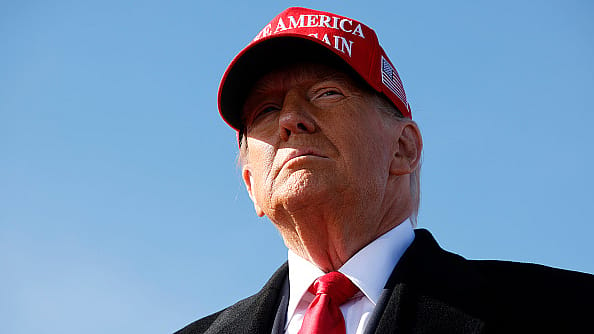Trump 2.0: What India stands to gain, lose as the US swears in its 47th Prez
ADVERTISEMENT

A few hours from now, Donald J. Trump will be sworn in as the 47th President of the United States, the world’s largest economy. External Affairs Minister S. Jaishankar will represent India at the inauguration ceremony, scheduled to take place at the US Capitol at 10:30 PM IST. Given the significant impact of Trump’s policies on global trade and geopolitics during his previous term as the 45th President, his second term is being closely watched—not only by India but by nations worldwide, big and small. For India, the stakes are particularly high, as the US remains its largest trade and strategic partner.
What can we expect?
Trump's initial steps in office could become clearer during his inaugural address later tonight. In a pre-inauguration rally on Sunday, Trump reportedly stated his intention to repeal every "radical and foolish executive order of the Biden administration," heightening anticipation around his immediate actions. Broadly, however, Trump's priorities are already known: he advocates stricter immigration rules, is vocal about trade protectionism through high tariffs, and champions the "America First" agenda, even at the expense of international commitments like climate action and multilateral trade agreements.
India could face direct implications if Trump enacts country-specific tariff measures or imposes visa restrictions on technical workers. Indirect impacts could be both positive and negative, depending on the policies announced and the countries they target.
A September 2024 report by global markets research agency Nomura analysed the potential impact of a second Trump administration on the US economy, geopolitics, financial markets, and the rest of the world, with a particular focus on Asia. Nomura identified India as one of the nations likely to benefit from Trump’s policies during his second term. Other countries on this list included Israel, Russia, Saudi Arabia, Australia, and Japan. “We see India as a relative beneficiary due to its domestic demand-driven growth model and advantages from lower commodity prices, supply chain shifts, and foreign policy alignments,” Nomura researchers noted.
According to the report, India and the US share deep economic and strategic interests that are unlikely to be compromised, regardless of who holds the US presidency. The US views India as a strategic counterbalance to China, further strengthening their bilateral ties.
The US accounts for 18% of India’s merchandise exports, which include electronics, pearls and precious stones, pharmaceuticals, nuclear reactors, petroleum products, and, to a lesser extent, iron and steel, automobiles, and textiles. India is also a leading global exporter of IT and professional services, particularly through global capability centres involved in outsourcing value-added services. The US remains a key customer for India’s services sector. However, Nomura emphasized that India’s domestic demand-driven economy would limit the negative spillover effects of slower US growth.
Lower commodity prices, driven by weaker Chinese growth and a greater push toward fossil fuels under Trump’s policies, could serve as a macroeconomic tailwind for India. “India is a large, domestic demand-driven economy, so the economic fallout of weaker US growth should be limited. Any frictions on trade and immigration will likely be more than offset by gains from ongoing supply chain shifts, as de-risking from China gathers momentum under a Trump presidency,” the report stated.
The early days of Trump's second term will test this widely held hypothesis.